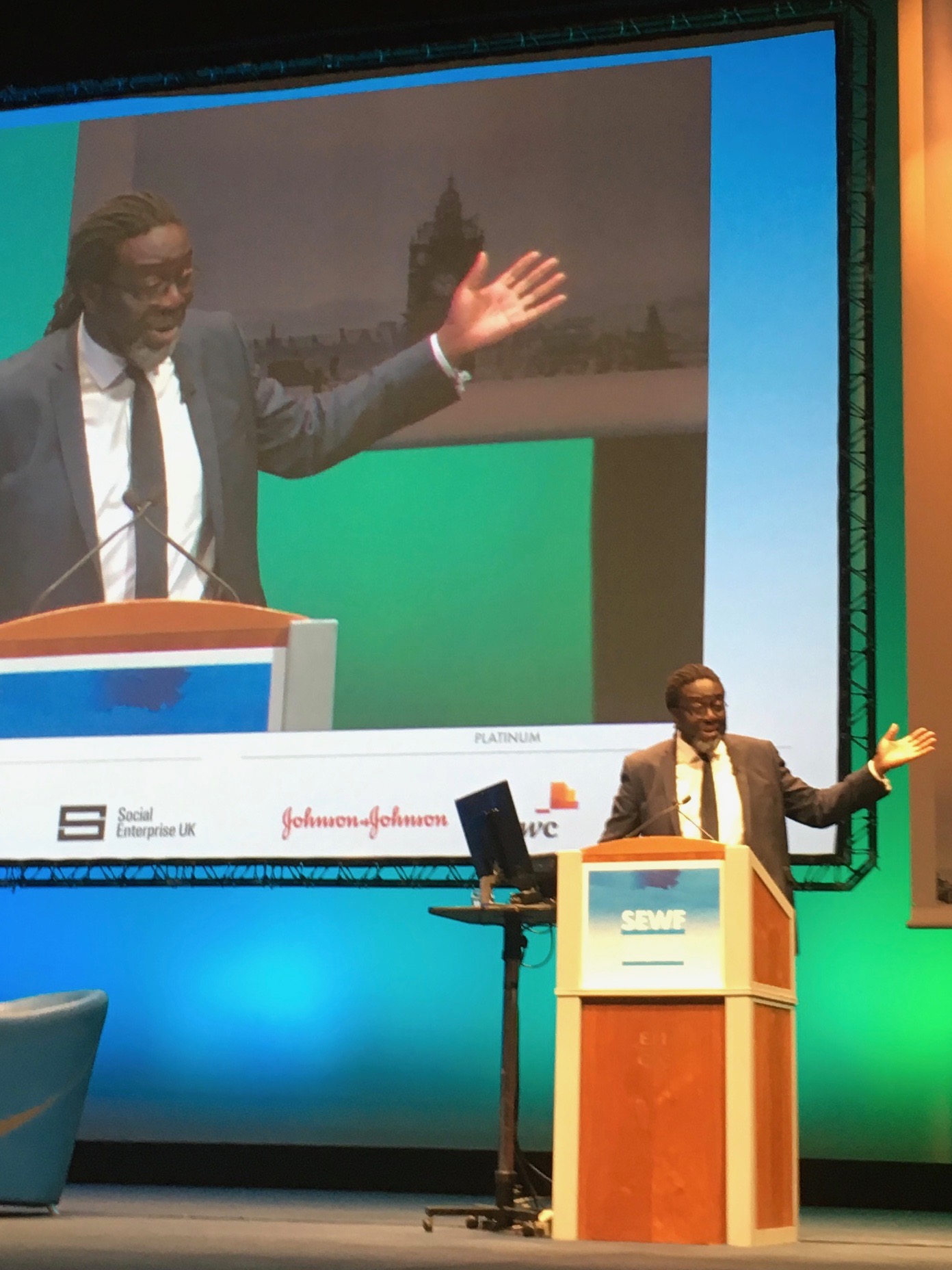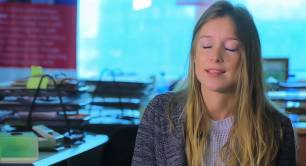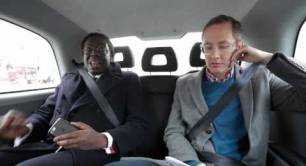SEWF 2018: “We’re standing on a burning platform”
Speakers at the Social Enterprise World Forum 2018 called upon the social enterprise movement to take "audacious" action to change the world
Time is running out for social entrepreneurs and social investors to really change the world.
This was the essence of the messages from speakers on the final morning of the Social Enterprise World Forum 2018 in Edinburgh.
In two plenaries on 14 September, several speakers pointed out that rising political extremism, potentially catastrophic climate change and rampant capitalism were pushing the planet towards a tipping point from which there could be no return.
They called upon the social enterprise movement to step up and make a change.
“Let’s be deeply audacious,” said “institutional innovator” Indy Johar, founder of Dark Matter Labs.
“If we don’t, this world is going to hell in a handcart.”
 Echoing Johar’s point, Lord Victor Adebowale (pictured left), CEO of UK social enterprise Turning Point and chair of Social Enterprise UK, said: “I believe that social enterprise is the future of business. But we are running out of time. We are standing on a burning platform – not just economically, but environmentally and politically.”
Echoing Johar’s point, Lord Victor Adebowale (pictured left), CEO of UK social enterprise Turning Point and chair of Social Enterprise UK, said: “I believe that social enterprise is the future of business. But we are running out of time. We are standing on a burning platform – not just economically, but environmentally and politically.”
Chairing the first session of the morning on “the collaborative economy and the future of business”, Dr Mairi Mackay, director of social and creative economies at the British Council, highlighted that there had been an “extraordinary shift” recently in the way people perceived social enterprise and that there was more of an appetite to think about what this meant for the economy.
She said following on from the “enlightenment of the mind” which had led to the capitalist market system, “it’s time to think about an enlightenment of the heart in the way we think about our economies – how we are connected to one another and the environment and what matters when we are thinking about economic solutions.”
It’s important to acknowledge young people’s views of the world, pointed out Jan Owen, CEO of the Foundation for Young Australians. She added: “The mantra that we have had in the social enterprise sector around value creation and adding value rather than extracting value resonates way more with a future generation of leaders and innovators.”
However, the speakers pointed out that there were challenges to achieving this shift. Faraz Khan, CEO of Seed Ventures in Pakistan, pointed out that many “silo efforts” were taking place but they needed to be interlinked.
I believe that social enterprise is the future of business. But we are running out of time – Victor Adebowale
Dai Powell, CEO of the UK’s social enterprise HCT Group, said that it was difficult to get enough risk capital into the social enterprise sector.
In comparison, Johar highlighted that the scale of risk capital invested in platforms such as Uber was “extraordinary”. And Powell added that there had to be more large-scale social enterprises if they were really going to change the economy.
To put the scale of the challenge into perspective, Johar said there was currently an annual shortfall of $2.3 trillion in the capital needed to deliver the Sustainable Development Goals.
“Are we playing at the right scale?” he asked. “I don’t think so. The next ten years of social enterprise has to become much more significant.”
Header photo shows speakers left to right: Mairi Mackay, Faraz Khan, Jan Owen, Dai Powell and Indy Johar.
You can watch the two plenary sessions in full below
See all our coverage of the Social Enterprise World Forum 2018 here.



